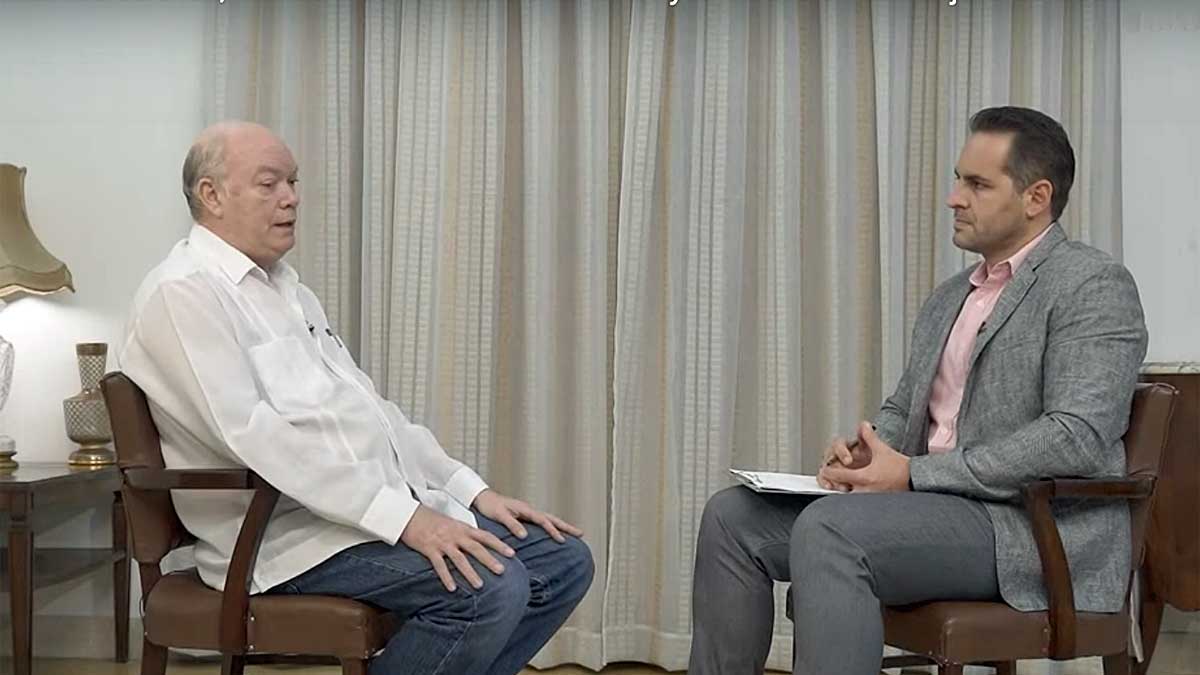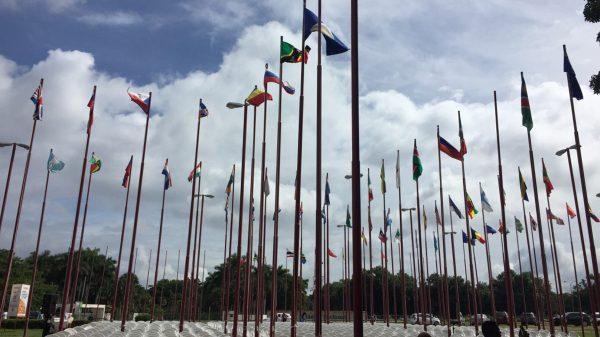Rodrigo Malmierca Díaz, Cuba’s Minister of Foreign Trade and Foreign Investment spoke with RT’s journalist Oliver Zamora Oria on how U.S. sanctions affect Cuba’s foreign investment scenario.
“In New York there is a lot of Cuban tobacco smuggled in, because there is a lot of demand,” says Is the U.S. Cuba’s main trading partner? Why are all the companies that go to the island to do business worried? What can Cuba offer to attract foreign capital?
Rodrigo Malmierca Díaz, discusses about the negative impact on investment of Title III of the Helms-Burton Act, which allows U.S. citizens to sue companies that conduct business or activities on confiscated property in Cuba.
Without giving specific examples, to prevent “companies from feeling uncomfortable”, Malmierca explains that “there are businesses that were practically ready and that have been ruined” because of the fear of the sanctions.
“Today, all the companies that come to do business in Cuba are concerned about the papers that have to do with the ownership of the land, because that is what can finally lead to a type of lawsuit against them,” he adds.
For the minister, “the U.S. economic, commercial and financial blockade against Cuba is the main obstacle, not only for foreign investment, but for the whole economic and social development” of the island. However, he is optimistic about the attractions it offers: tranquility, stability, tax incentives and a mass of well-prepared labor force.
“The U.S. economic, commercial and financial blockade against Cuba is the main obstacle, not only for foreign investment, but for all economic and social development.”
Even so, Malmierca believes that they still have to improve when it comes to creating a favorable climate for investment and maintains that they need to work with “more proactivity, more efficiency, less bureaucratic delays and that the activity advances in an environment much more receptive to foreign capital.”
In search of foreign investment
Currently, the Cuban government is focusing on attracting greater volumes of foreign investment, for which it has been changing its policy in recent times. “Today, foreign investment is considered a fundamental and important element to attract capital and to be able to make the investments the country needs,” he says.
In that sense, the latest business portfolio they launched is different from the previous ones for three reasons, according to Malmierca. There are more than 600 projects with an investment volume exceeding US$12 billion that, for the first time, has been presented on a digital platform that will continue to be updated online on a permanent basis.
“For a long time now we have been promoting dialogue with the community of Cubans living abroad.”
Secondly, also for the first time, ideas that are generated at the local level are being included, with 60 projects that respond to municipal initiatives. “This is closely linked to the new Constitution, which gives a fundamental weight to the territories,” says the minister.
And thirdly, small projects that respond to local needs and have a demonstrable economic feasibility are also sought. Thus, “micro, small and medium-sized enterprises can be the object of attraction of foreign capital,” he explains.
Attracting Cubans abroad
Among the capital sought to be attracted is also that of Cubans abroad, such as those living in the U.S. “It is obvious that it has a political connotation, but for a long time we have been promoting dialogue with the community of Cubans living abroad,” he says.
“The blockade comes from the side over there, we don’t block anyone.”
Thus, the minister explains that Law 118, passed in 2014, does not discriminate against Cubans or any nationality: “The blockade comes from the side over there, we do not block anyone,” the official assures. At the moment, he points out, there are still very few businesses with capital from Cuban people living abroad, “but we are open”.
Navigating in the face of the Trump blockade
Malmierca tells how “the Trump Administration tightened the blockade a lot and the interest of foreign companies declined”, so now they are making a great effort to attract capital.
However, trade is still limited due to the blockade. Now the island imports some food from the U.S., but besides being a very complex process, it is not reciprocal. In addition, “the situation has worsened with the covid-19: there is an international transportation crisis”, says the minister, who believes that “we have to be very imaginative to ensure that they do not paralyze our economy”.

This just in… publish your latest business industry news on Cuba here. Contact us here to submit your press release.













